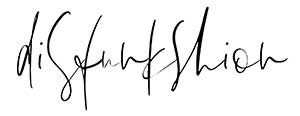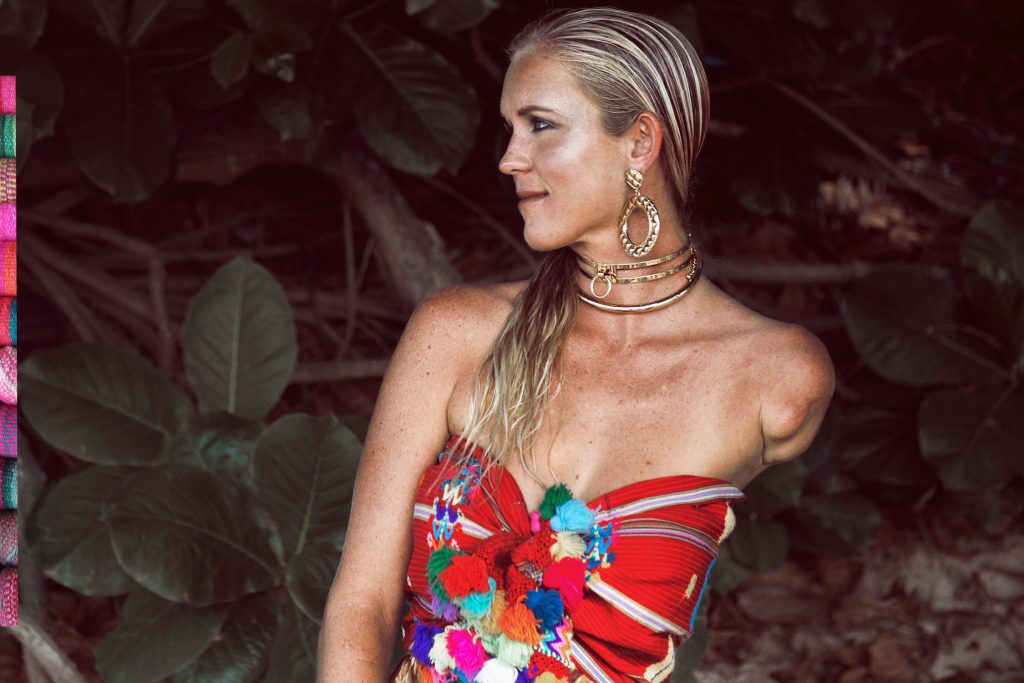If we haven’t met struggle, we haven’t met real life. It’s part of the human experience to come up against the immovable, that which either bends or threatens to break us. In any case, trials change us and no one knows this better than pro-surfer Bethany Hamilton.
A shark attack at age 13 may have cost Hamilton her left arm, but as is evident from her return to the water, a National surfing title (among others), a New York Times best-seller, feature film and upcoming Surfs Like a Girl documentary, her spirit has never been more intact. It seems counterintuitive, doesn’t it? Certainly not something we see modeled in the world enough; yet, as unexpectedly as life can change, hope finds the cracks. It’s electric, the kind of vision, splitting the darkness—even if only briefly—to beckon us more deeply into the beauty of life.
At least, this is how Hamilton presents it.
“To believe there is more good beyond a tough circumstance, to expect good,” is how Hamilton defines hope when asked. She’s on her way home from a surf trip in Samoa, a fact that could lead one to think ‘tough circumstances’ aren’t exactly on her radar anymore, but the opposite is true.
“Everyone faces pain at some point(s) in life and no matter how big or small the pain, it hurts,” Hamilton comments. “For some, it can be challenging to not take on a ‘victim’ mentality where one allows a tragedy to define him or her: ‘I can’t do that because (fill in the blank tragedy) happened to me,’” she explains.
“It’s like choosing the easy way out. But to me that easy way can be hopeless and unfulfilling. To be an overcomer you have to have a certain state of mind which is determined to win over the circumstances…It requires hope and perseverance. But, even me, ‘the invincible,’ have at times leaned towards the easy way out and that is when God, the author of my faith, was my true strength.”
In a time when political correctness might eclipse the openness to talk about belief, Hamilton demonstrates a kind resolve to resist the easy answer. She instead leans in to get to the heart of where her hope comes from, along with why and how anyone can learn to adapt from pain in a similar manner. “We can, in a sense, prepare ourselves to handle difficult situations a little better,” she continues. “For me, those daily choices were trusting God and that came from reading the Bible and surrounding myself with people who encouraged me in my faith. Even as a thirteen-year-old girl I had faith, and I believe that God strengthened me to trust that he had a plan for my life and was going to help me through the life change of losing my arm. And I believe God did help me through it.”
Believing there’s a purpose or plan behind our pain can be difficult, regardless of what belief system we subscribe to. To feel hope’s limit, that point where we’re tempted to just give up and let circumstances overtake us is something we’ve all experienced; we probably will again. To that point, Hamilton adds, “That’s when perseverance and endurance are needed. It’s choosing to believe that hope exists, even when emotions run wild. You reign in those emotions and doubtful thoughts, controlling them with truth. Sometimes you just need a little [truth] to hold on to, which gets you through a rough emotional patch. Then your faith becomes stronger and that hope you once had returns.”
Hamilton also stresses the need for a safe, trusting community. Even just a friend, one-on-one, that’s willing to meet you in your hardest moment can turn the tide. She says, “[It’s about] being real and vulnerable with each other, open and relating through the struggles we face. It’s in the times of pain and struggle that we can be comforted and learn so much. [For example,] God comforts me in all my troubles so that I can comfort others — then they can patiently endure the same things. This brings purpose to my pain, and allows me to have hope and patience to endure it.”
Better, not broken, seems to be the hallmark of Hamilton’s story. Her mindset is one we can adopt too, if we want. It’s an invitation to claim (or reclaim) the ending to our own stories, even if we’re not there yet, as we weave them in with others.
She ends on this note—encouraging anyone to find the purpose in both their pain and their “ordinary”—saying, “Take a new approach daily, determine to be kind to and uplift one person you encounter. Often we feel purposeless or stuck because we’re only thinking of ourselves. Turn your mind to think of others as more important than yourself, and I bet you’ll find there’s so much purpose in life.”
And just like that, another streak of hope lights up the night sky.
To learn more about Bethany and her upcoming projects, visit bethanyhamilton.com.
By Nicole Ziza Bauer
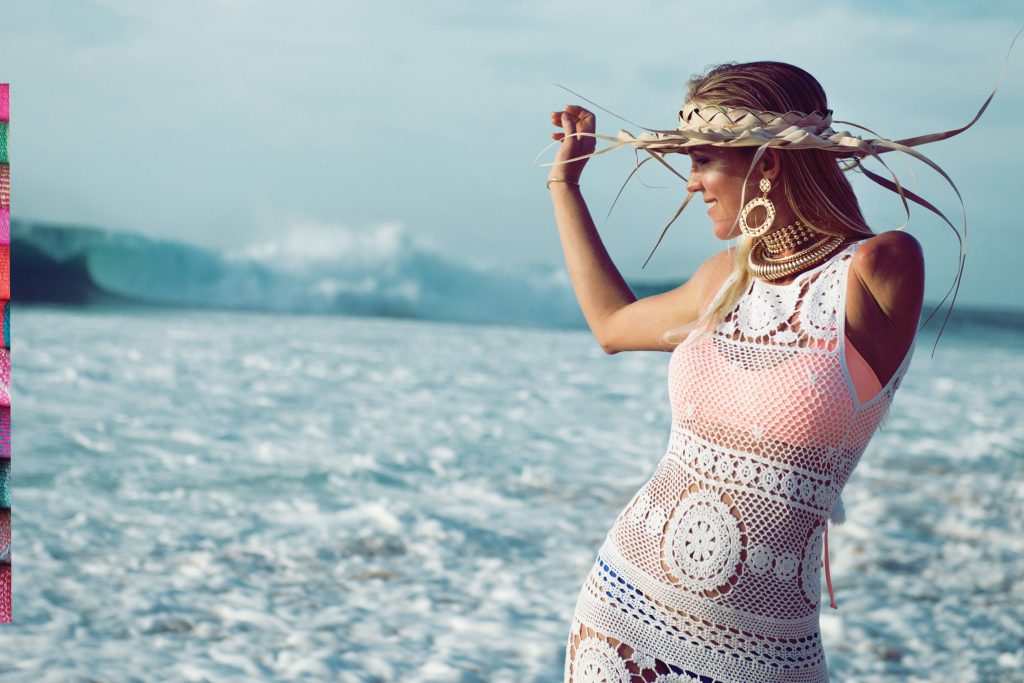
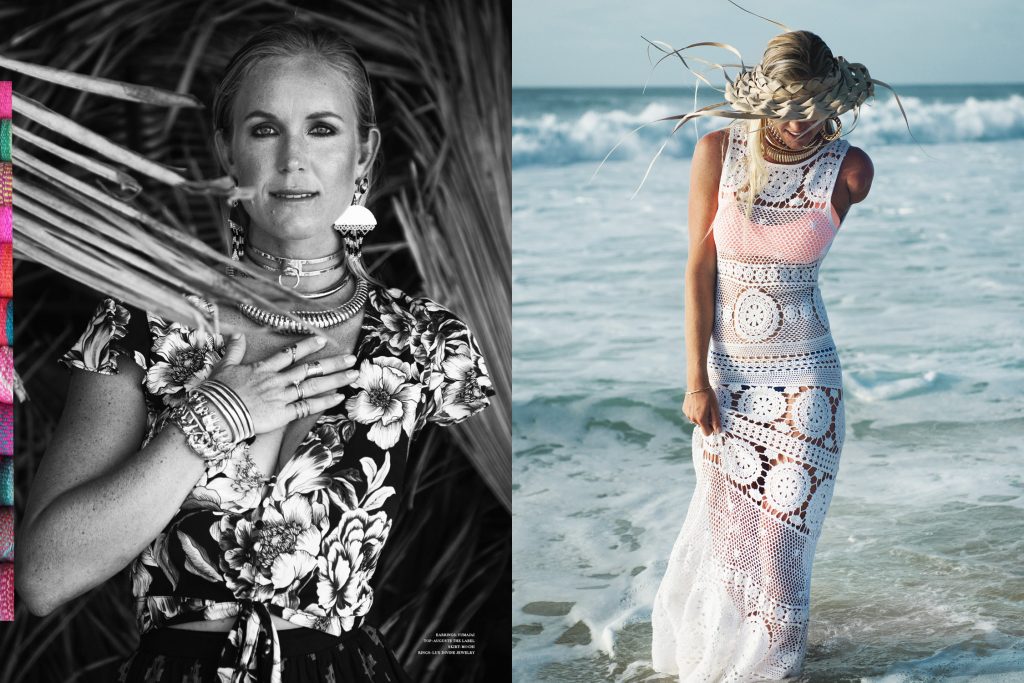
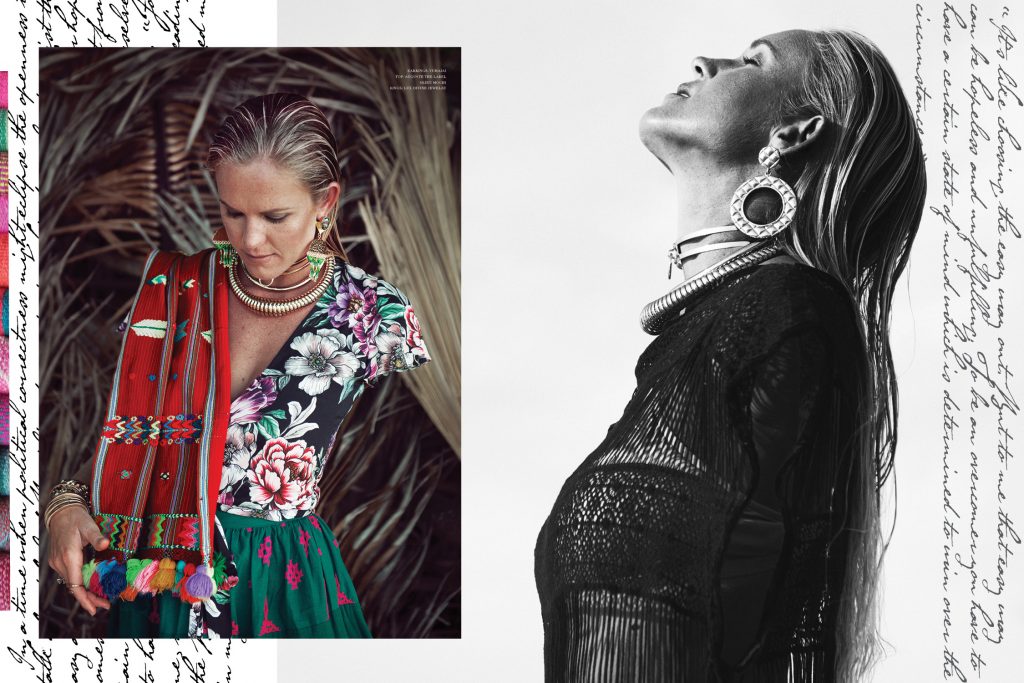
Editorial Credits:
Photography // Megan Costello
Beauty // Kecia Littman
Styling // Hugette Montesinos Rodriguez
